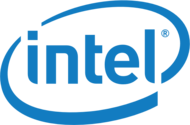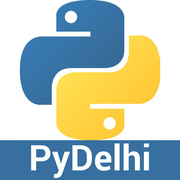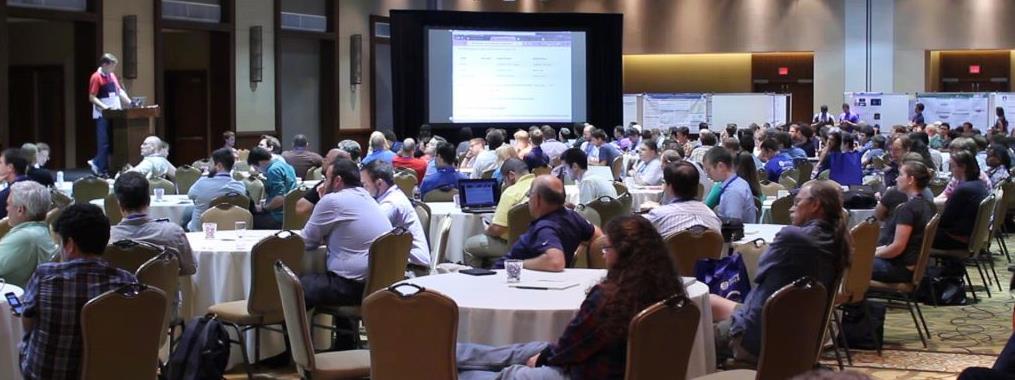SciPy 2016 General Conference
Talk and Poster Presentations
Talk and Poster Submissions are now closed.
SciPy 2016, the fifteenth annual Scientific Computing with Python conference, will be held this July 11th-17th in Austin, Texas. SciPy is a community dedicated to the advancement of scientific computing through open source Python software for mathematics, science, and engineering. The annual SciPy Conference allows participants from academic, commercial, and governmental organizations to showcase their latest projects, learn from skilled users and developers, and collaborate on code development.
Specialized Tracks
This year we are happy to announce two specialized tracks that run in parallel to the general conference track:
Python in Data Science
The explosion of interest in the field of data science has increased demand for methods to analyze massive and heterogeneous data sources in the search for meaning and pattern identification. Given its flexibility and power, Python has become a central component of the data science toolset as reflected in a number of actively developed packages in the areas of knowledge discovery, data mining, machine learning and natural language processing, among others. This special track will bring together researchers, developers, and industry analysts to focus on efforts to promote and develop Python for data science.
High Performance Computing
Whether your algorithm is distributed, threaded, memory intensive or latency bound, Python is making headway into the problem. This track will discuss performance driven designs in Python such as parallel applications, new architectures, tips and tricks to make traditional applications execute more efficiently.
Domain-specific Mini-symposia
Introduced in 2012, mini-symposia are held to discuss scientific computing applied to a specific scientific domain/industry during a half afternoon after the general conference. Their goal is to promote industry specific libraries and tools, and gather people with similar interests for discussions.
Mini-symposia on the following topics will take place this year:
- Earth and Space Science
- Engineering
- Medicine and Biology
- Social Sciences
- Special Purpose Databases
- Case Studies in Industry
- Education
- Reproducibility
Planning for your Proposal Submission?
Proposals must be submitted by April 1, 2016. Here's what you'll need for a submission:
The Brief Abstract: The brief description you fill out below will appear in the online program.
The Long Description: Your placement in the program will be based on reviews of your detailed description. This should be a 200-500 word detailed outline of your presentation. This outline should concisely describe software of interest to the SciPy community, tools or techniques for more effective computing, or how scientific Python was applied to solve a research problem. A traditional background/motivation, methods, results, and conclusion structure is encouraged but not required. Links to project websites, source code repositories, figures, full papers, and evidence of public speaking ability are encouraged.
Proceedings
Even if you aren't going to write a paper, please consider volunteering to help review!

























